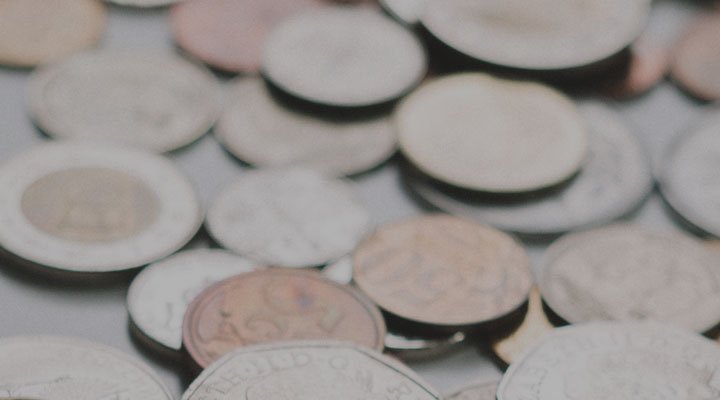Junior ISA (JISA): everything you need to know
A complete guide to the tax-free children’s ISA
It’s never too early to start saving. Setting up a junior individual savings account (ISA) can be a great first step to get your child on the path to a more secure financial future. Junior ISAs let you save or invest up to £9,000 tax-free (in the 2025/26 tax year), and the money is locked away until the child’s 18th birthday.
In this article, we take a look at all you need to know about junior ISAs, including the junior ISA rules and allowance, the pros and cons of JISAs, and what to consider when choosing a savings account for your child.
What is a Junior ISA?: A junior ISA is a children’s tax-free savings account in which the savings or investments are locked away until the child turns 18
Junior ISA allowance 2025/26: Parents or legal guardians can open a junior ISA on behalf of the child, with a maximum contribution limit of £9,000 per tax year
Junior ISA vs. savings account: If you might need access to your money, it can help to consider other long-term savings accounts with more flexible withdrawal options, like fixed rate bonds
The information provided here is for informational and educational purposes only and does not constitute financial advice. Please consult with a licensed financial adviser or professional before making any financial decisions. Your financial situation is unique, and the information provided may not be suitable for your specific circumstances. We are not liable for any financial decisions or actions you take based on this information.
What is a junior ISA?
A junior ISA, also known as a JISA, is a long-term, tax-free individual savings account (ISA) that you can set up for a child below the age of 18. The junior ISA needs to be set up by a parent or legal guardian, but all the money is locked away until the child turns 18. They’re often created to help secure a more stable financial future for the next generation.
There are two main types of junior ISA:
- Junior cash ISA: A junior cash ISA works in a similar way to a standard savings account, accruing interest over time. It offers a low-risk option for savers, but the interest rates may vary. You pay no tax on any interest earned on the cash you save.
- Junior stocks and shares ISA: With a junior stocks and shares ISA, also known as an investment JISA, you can put your child’s money towards investments like shares, bonds, and funds. There is potential for higher returns with this type of ISA, but it also comes with the risk that you may lose money. You pay no income tax or capital gains tax on any returns you make from your investments.
What is the junior ISA allowance?
In the 2025/26 tax year, the maximum amount you can contribute to a UK junior ISA is £9,000. If you exceed the junior ISA limit, any additional funds will be held in a trust savings account for the child. The excess funds cannot be returned to the donor. It is also worth noting that any unused JISA allowance will not be carried over to the following tax year.
Can anyone open a junior ISA for a child?
If you’re 16 or older, a UK resident, and a parent or guardian with parental responsibility, you can open a junior ISA for a child under 16. If you’re living at the same address as the child, you can easily apply online. Otherwise, you can visit a branch to apply. To get started, select the type of junior ISA you prefer (cash, stocks and shares, or both), and then choose your ISA account provider.
But what about other relatives? Can a grandparent open a junior ISA, for example? In this case, you’d only be able to open a junior ISA for your grandchild if you’re their legal guardian. However, you can still contribute money to your grandchild’s JISA once it is open.
Who is eligible for a children's ISA?
Your child is eligible for a junior ISA if they’re under the age of 18 and don’t have a child trust fund (CTF). If you’re looking to take advantage of the generally more favourable junior ISA interest rates, some providers will let you transfer savings in a child trust fund to a junior ISA. The junior ISA age limit does vary from bank to bank, and some will have a lower age limit of 16. To open an account, your child will usually need to be resident in the UK, although again, this can vary depending on the type of ISA account and the financial institution.
What are the benefits of a junior ISA?
Setting up a junior ISA – or any kind of savings account or investment – can be a good investment for your child. It can help them start their adult life with funds behind them and put them on the financial ladder before they start their own savings journey.
Take a look at some of the other benefits your family can enjoy with a junior ISA:
- Tax advantages – A junior ISA is a popular choice as you pay no tax on any interest or returns. This means that even when your child turns 18, they won’t face any capital gains or income tax deductions.
- Locked in – The money in a junior ISA is designed to be locked away. This means that your child won’t have any access to the junior ISA funds until they turn 18. Depending on their age when you open the account, this gives a solid amount of time for funds and interest to accumulate.
- It’s worth noting that there are other types of savings accounts with competitive rates that let you save for the long term – for example, fixed rate bonds are also locked in for a period of time (from six months to five years) to allow the interest to grow.
- Anyone can top it up – Another benefit of the junior ISA is that anyone can add to it. This means that relatives, friends, grandparents, carers, and anyone else who wants to contribute to your child’s financial future can do so by depositing money into the JISA. You would just have to keep track so that the total contributions do not exceed the JISA annual allowance.
Are junior ISAs worth it?
Junior ISAs can be a good choice if you want to start saving early and building a lump sum of money for your child’s adult life. There are certain circumstances where it might make sense to open a junior ISA, such as if the interest rates are higher than a standard children’s savings account, or you want to lock away the child’s cash until they reach the age of 18.
If you are a parent, it can also help to reflect on your own tax situation. Like adults, children can earn up to £18,570 tax-free interest if they have no income. As long as you have not used up your own Personal Savings Allowance (PSA), you might consider saving for your child in a standard savings account, especially if the interest earned would fall within your PSA limits. So it’s worth noting that a junior ISA isn’t the only savings option for young people, and it can help to compare savings account options.
To boost your own savings, you might look at opening a separate savings account or consider fixed rate bonds, which may have a more competitive edge in terms of interest rates and gains. On the Raisin UK marketplace, for example, you can benefit from interest rates of up to 4.40% AER.
If you’re opening any kind of financial savings account, it’s important to look for the most competitive rates as well as terms and conditions that suit you and your child.
Cash vs stocks and shares junior ISAs
Cash accounts are popular when setting up a junior ISA as they have a lower risk than stocks and shares. Anyone can pay into the account, and you benefit from never having to pay tax on the interest earned.
However, while cash is considered to be a more stable choice, inflation and rising living costs can erode any interest earned on a children’s ISA. Inflation lowers the real value of money over time, meaning the interest earned may not keep up with increasing expenses. To maximise the returns on your savings, it’s important to shop around and compare interest rates when opening your junior ISA.
Because stocks and shares can increase in value, you may get more out of this kind of junior ISA than a junior cash ISA. However, it’s also worth remembering that while stocks and shares can increase in value, they can also fall. As a result, the value of your investment can also go down, and your child would get back less money than you’ve put into the ISA. Make sure that you do due diligence when researching the best stocks and shares to mitigate some of that risk.
How to choose the best junior ISA for your child
Choosing the best junior ISA for your child often means getting the best deals in terms of interest rates. If you opt for a junior stocks and shares ISA, you might also consider your risk tolerance, as the value of your savings can go down. Other factors to take into consideration include minimum investment requirements imposed by some ISA providers, which can range from £1 to larger monthly or lump sum savings amounts. It can also help to compare annual fees and investment charges across different junior ISA providers to ensure you choose the most suitable option for your financial goals.
What are the alternatives to junior ISAs?
The junior ISA rules can be fairly restrictive. If you want to secure a financial future for the young people in your life, there are alternatives that mean you don’t have to be locked into a junior ISA. If you think your child may need access to their funds before 18, you may want to look at child savings accounts, as these do not involve such a long time commitment. Alternatively, you may want to boost your own savings with high-interest easy access savings accounts.
While the JISA annual allowance can be appealing, you can also expand your search beyond the junior ISA market and select a bank or financial institution that offers the very best rates and deals. It’s worth remembering that while numbers matter when selecting a savings account or fixed rate bond, the terms and conditions are equally important. Make sure that you read the small print to find terms that are favourable for you and your child, such as notice periods, flexibility, and policies and penalties for early withdrawal.
Open a savings account with Raisin UK
While we don’t offer junior ISAs at Raisin UK, you can quickly and easily open other high-interest savings accounts to save for your children by registering for a Raisin UK Account.
Opening an account with Raisin UK is free, allows you to manage multiple accounts in one place, and offers competitive interest rates from a range of UK banks and building societies.
Save smarter with the Raisin UK newsletter!
What’s in it for me?
- Receive exclusive updates on market-leading rates
- Ensure you never miss a bonus offer
- Keep your finger on the pulse with the latest financial news
FAQs: Junior ISAs
How do you pay into a junior ISA?
You can typically pay into a junior ISA in the same ways you would with a normal account. You can set up a monthly direct debit, pay in online with your debit card, over the phone, or by posting a cheque. You just need to provide the child’s ISA account number, their name, and their date of birth.
You can either deposit a lump sum of money or top it up as you go (up to the junior ISA allowance limit). Depending on the ISA provider, you may also be able to transfer in an old child trust fund.
What happens to the junior ISA when my child turns 18?
When your child reaches 18, they gain full control over the junior ISA account, and they can choose to either withdraw the funds or carry on investing or saving. Children’s ISAs automatically become adult ISAs once the child reaches adulthood. This means that the savings accumulated in the junior ISA become part of an adult ISA, subject to the rules that come with standard ISA accounts.
Can parents withdraw money from a junior ISA?
No, you cannot withdraw money from your child’s ISA. The funds belong to your child, and even as their parent, you cannot access them. Your child can withdraw the money from the ISA when they reach 18.
Can I have two junior ISAs?
Yes, junior ISA rules are the same as for other ISAs, meaning that your child can hold both junior ISA types. So you could choose to split the £9,000 junior ISA allowance between a cash junior ISA and a stocks and shares junior ISA in the same tax year. You can transfer these accounts between providers, but your child can only have one junior cash ISA and one junior stocks and shares ISA at any one time. It’s important to take care when transferring; if you withdraw your funds, the JISA will likely lose its tax-free status.
Can I open a junior ISA for my grandchild?
Yes, but only if you have parental responsibility for the child and meet the other requirements for opening a junior ISA (you are over 16 and resident in the UK). With some providers, you may have to apply for an account in-branch if you live separately to your grandchild. You can find out more information on the UK government’s junior ISA page.


